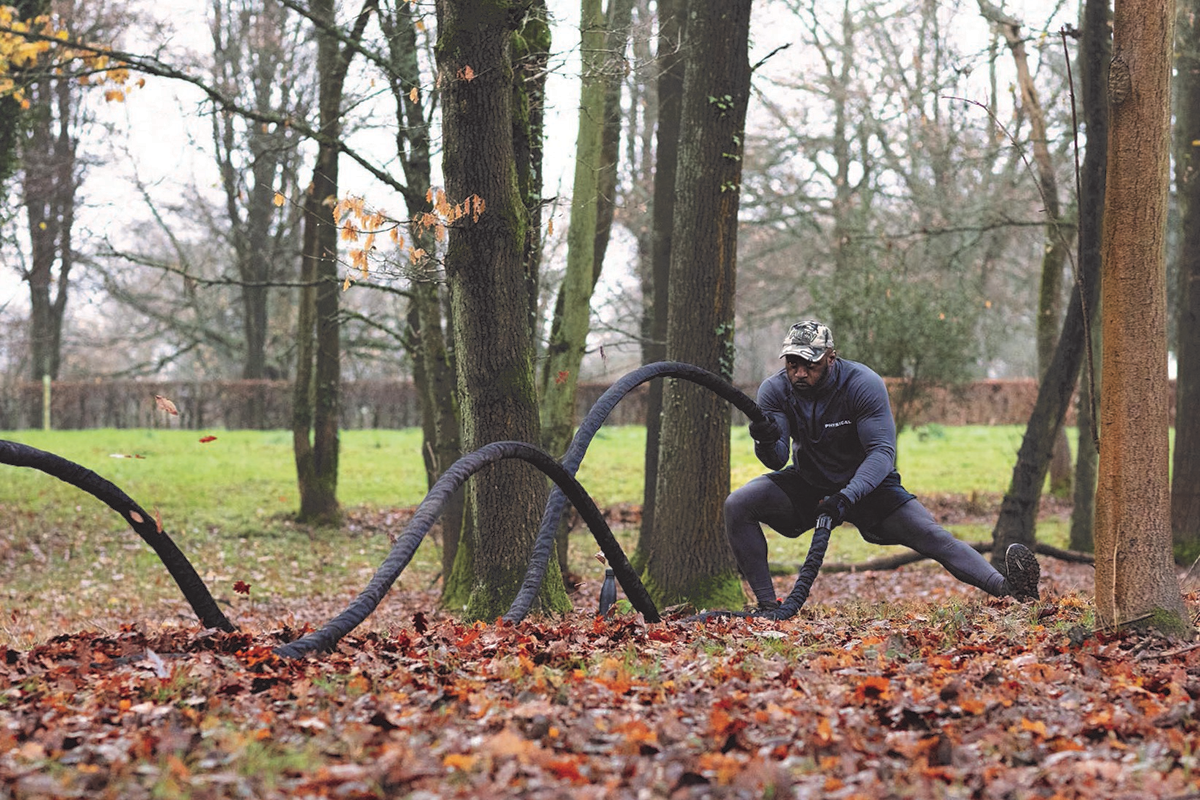Ask an expert: Should we prescribe exercise for depression?
Oxford University found at least a million more Britons should be prescribed drugs for depression. Is this the ideal opportunity for us to get in front of GPs and persuade them to prescribe exercise instead? Kath Hudson reports

Oxford University’s research – one of the largest ever surveys of depression – revealed that only one in six people are receiving the drugs they need. It also found GPs can be 'squeamish' about prescribing anti-depressants, when they would readily prescribe drugs for other illnesses.
However, even though research has shown physical activity can be as effective as drugs in treating mild to moderate depression, few GPs are prescribing exercise.
Like obesity and inactivity, mental illness is affecting ever increasing numbers of people. Shockingly, the average age of onset for depression is now 14, compared to 45 in the 1960s and there was a 116 per cent rise in young people talking about suicide during Childline UK counselling sessions in 2013/14, when compared to 2010/11.
What can the fitness industry do to turn the medical sector on to exercise? Does it need direction from the highest level, or could operators create their own pathways? Many members will be suffering from mental illness and already self-medicating with exercise, but for those who have more severe challenges that impact motivation and confidence, are operators offering the right environment and programmes?
Considering that some of those suffering from severe depression are at risk of suicide, is the industry ready to work with this vulnerable group? We ask the experts…
Dr John Morgan,
Clinical director,
Bucket and Sponge Medical Services

Research shows activity can be an effective supplement to treatment in mild to moderate depression – it achieves a short-term reduction in anxiety and may help prevent a relapse.
It also has positive side effects, including distraction from negative thoughts, improved sleep, release of endorphins, social interaction and improved self image.
Exercise such as walking, swimming, jogging, weightlifting, resistance training and stationary cycling have all been shown to benefit people with depression. Other activities, such as dancing, tai chi or yoga may appeal to some.
The benefits of team sport are also great. For older people with depression, planned and structured activity is among the most effective treatment and is now considered a suitable alternative to antidepressants in this group.
Although antidepressants may achieve a more rapid onset of therapeutic effect, physical activity provides an equivalent effect after 16 weeks and has the added benefit of improving physical functioning. However, physical activity as a treatment has its limitations and should not replace standard treatment – particularly for those with severe depression.
The treatment of depression is multi-factorial and very patient-centred, dependent on the severity of the depression and individual social factors. Those suffering from moderate to severe depression may need psychiatric assessment, counselling, CBT or to be taught problem-solving skills. The risk of suicide also need to be taken into consideration.
If operators in the industry are to offer activity as a treatment, they'll need to work closely with sufferers, giving them more support than the usual gym member, finding them an activity they enjoy, offering early reviews, gradual progression and celebrating their achievements.
"Although antidepressants may achieve a more rapid onset, physical activity provides an equivalent effect after 16 weeks and has the added benefit of improving physical functioning"
Dave Thomas,
Director and founder,
The Foundry

People suffering from depression often struggle to even get out of bed, so their route to exercise needs to be as smooth as possible. This includes creating bespoke programmes, increasing support and making the referral pathway obvious for GPs.
My experience of being wrongly prescribed anti-depressants as a teenager – with disastrous consequences – meant I was keen to support other people with mental illness.
In response, The Foundry has a charitable arm offering free and subsidised classes and gym membership to people with mental illness.
This removes one common barrier to entry – affordability. Although there’s a cost to our business, it's a great way of inspiring loyalty.
We help people to get back on their feet and they frequently become paying members when they’re eventually in a position to do so.
The next barrier is “gymtimidation” which we have sought to overcome by being as friendly as possible. Staff are trained to remember everyone’s name and we want a smile to be the first thing people see when they enter the club. All members – even those who are non-paying – are assigned a specific coach, who they can call or email if they have an issue or need support of some kind.
We encourage all of our members to notice how they’re feeling, rather than just how they look and to chart their mental health using an emotional scale. Generally, we see an 80 per cent improvement from month one to month three in relation to their mental wellbeing and confidence.
On a bigger scale, I’d like to see the fitness industry create a mental health support network which gyms could sign up to which informs GPs of their accessible and supportive offerings, so the GPs are aware of what's happening locally and where they can direct their patients.
"My own experience of being wrongly prescribed anti-depressants as a teenager, with disastrous consequences, meant I was keen to reach out to support other people with mental illness"
Dr James Steele,
Principal investigator,
ukactive research institute

Resistance training significantly reduces anxiety among both healthy people and those with a physical or mental illness, according to a recent round-up of research, published in the journal Sports Medicine, by Brett Gordon and colleagues at the University of Limerick.
Despite this, and other research showing exercise can have a positive impact on mental health, many GPs remain reluctant to prescribe exercise for depression when a diagnosis is made.
The current healthcare model is medicalised and influenced by both the pharmaceutical industry and certain cultural expectations. People go to the doctor and expect to be prescribed medication. Added to this, there's little education within GP training on the benefits of activity.
As evidence-focused individuals, GPs will always want to see proof – especially if something is counter to their training. In order to inspire them to be confident to prescribe exercise, the sector needs to provide evidence of what we can offer and the benefits, as well as signposting easy pathways to exercise, so GPs have the confidence to prescribe it.
Greater integration of the fitness and medical industries is needed. There's no sign of the government taking the lead in making this happen, so it will have to be driven by the fitness sector.
The sector needs to step up, gather evidence to support what we do, reach out to the medical sector to create both formal and informal pathways and start creating opportunities designed specifically for those with mental health issues.,null
"The fitness sector needs to step up. We must gather evidence to support what we do, reach out to the medical sector and start designing opportunities specifically for those with mental health issues"

Professor Mark Baker,
Director of the centre for guidelines,
National Institute for Health and Care Excellence (NICE)

There’s a wealth of evidence to show that keeping physically active can improve overall wellbeing and is helpful in managing certain conditions.
Our range of guidance on depression encourages health professionals to tell people about the benefits of taking regular exercise, which can be helpful in a number of ways, for example combatting sleep problems, which are often associated with depression.
Structured exercise can be used to manage mild to moderate levels of depression and our guidance recommends physical activity programmes are considered alongside other psychosocial interventions.
For children and young people with depression, we recommend encouraging them to consider structured and supervised exercise sessions.
This should typically consist of up to three sessions a week, lasting 45 minutes to an hour, for at least 10-12 weeks.
For adults with mild to moderate depression we recommend structured group exercise of a similar duration to children and young people, which should be considered alongside guided self-help and computerised CBT.
Group exercise can include aerobics or strength training activities. Decisions on what approaches to take should be a shared decision between each individual and their health professional – taking into account their preferences.
"For children and young people with depression, we recommend structured and supervised exercise of up to three sessions a week, lasting 45 minutes to an hour, for 10-12 weeks"


Leisure Centre Duty Manager
Leisure Supervisor (Development)
Recreation Assistant (Dry Site)
Party Leader
Cleaning Assistant
Duty Manager
Duty Manager
Team Leader (Harrow School Fitness Club)
Centre Manager (Leisure)
Director of Operations
Fitness Motivator
Recreation Assistant/Lifeguard (NPLQ required)
Membership Manager
Recreation Assistant
Swim Teacher
Swim Teacher
Chief Executive Officer, Mount Batten Centre
Swimming Teacher
Swimming Teacher
Company profile

Featured Supplier

Property & Tenders
Company: Knight Frank
Company: Belvoir Castle
Company: AVISON YOUNG
Company: London Borough of Bexley
Company: Forestry England














